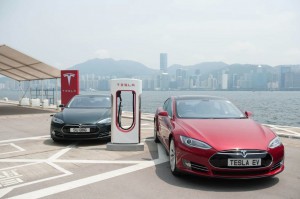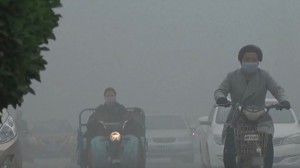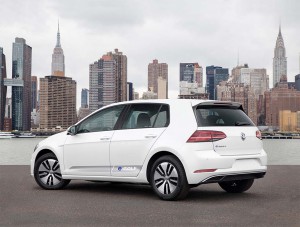China continues to crack down on the causes of air pollution in its largest cities with the latest measure being the banning of production of 553 vehicles starting in January.
The halt begins Jan. 1, the China Vehicle Technology Service Center said, according to Bloomberg News. While many of the vehicles affected are vehicles produced by Chinese manufacturers, also on the list are models from Audi, Mercedes-Benz and Chevrolet.
The move reflects the seriousness of the problem and the government’s determination to get it resolved. In recent months, the government has cut back steel production, restricted coal use and rolled out a plan to eliminate internal combustion engines in cars by 2040.
This list of banned vehicles is likely the first step in that process, but analysts expect more in the future.
(China’s newest EV maker looks to be a “world champion.” To find out more, Click Here.)
“To emphasize a cut back on energy consumption, such documents will surface frequently in the future,” said Wang Liusheng, a Shanghai-based analyst at China Merchants Securities, in an email to Bloomberg. “It’s an essential move to ensure the healthy development of the industry in the long run.”
It’s unclear how many distinct vehicles are produced in China, but the 553 models form a “very small” percentage said Cui Dongshu, secretary general of the China Passenger Car Association. In addition to eliminating vehicles, the government has incentivized the production of electric and other zero-emission vehicles.
The government’s recent push to expand the production and sale of NEVs, or new energy vehicles, has traditional and start-ups scrambling to stake out a new space.
Early on Tesla was expected to benefit immensely from the new rule allowing non-Chinese EV makers to build vehicles in the country without an indigenous partner. And while Tesla is hustling to get its production ducks in a row in China, so too are others, including General Motors, Ford, Volkswagen and Volvo. Meanwhile, there are plenty of start-up makers, like WM Motor, and other local companies like BYD, also looking to make inroads.
Tesla’s certainly not been left out, it can import its vehicles into China from its plant in California, but each of those vehicles comes with a 25% import duty, raising the price significantly. Tesla’s “mainstream” vehicle, the Model 3, comes with a base price of $35,000 before the duty.
(Click Here for more about Volkswagen’s $11.8B investment in EVs for China.)

Tesla is working on a deal to build its vehicles in Shanghai, which may get accelerated if China eases ownership rules for EV makers.
The company has been attempting to work out a deal to produce vehicles in China. It had better move fast, as mentioned, the big boys are coming.
“Between now and 2025, we will launch 50 new vehicles in China, and of those 50 new vehicles, 15 of them will be all-new electrified vehicles,” said Peter Fleet, Ford’s head of Asia Pacific operations.
Ford has been playing a game of catch-up in China, having waited a number of years before committing significant resources to a market where overall passenger vehicle sales totaled 24.4 million last year.
Volkswagen AG, which has been the torchbearer for EVs ever since its dieselgate scandal, announced plans to spend $11.8 billion by 2025 to develop and build all-electric and plug-in hybrid vehicles for Chinese customers.
China is by far Volkswagen’s largest single market and Volkswagen AG and Audi AG, intends to launch 15 of the so-called new energy vehicles models during the next two to three years as it rushes to meet the demands of the Chinese government, which is moving to address the discontent about pollution in China’s cities.
(To see more about China’s plans to relax rules on foreign EV makers, Click Here.)
Early results show that the moves are having a positive impact, at least in Beijing as the Chinese capital is set to record its biggest improvement in air quality in at least nine years, with a nearly 20% improvement, based on average concentration levels of hazardous breathable particles known as PM2.5. Reuters reports that average levels of the pollutants in the capital have fallen by about 35% from 2012 numbers, with nearly half the improvement this year.


